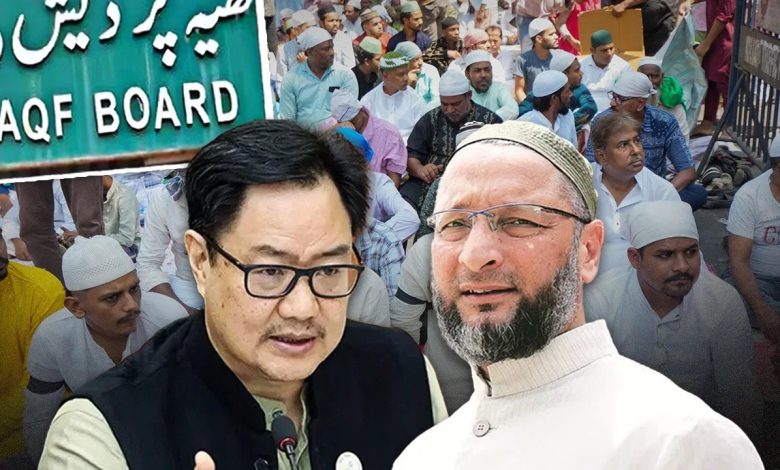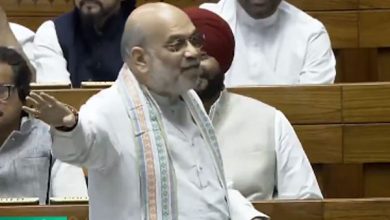Waqf Bill 2024: Will the amendment in Waqf benefit or harm Muslims? Know everything from government claims to concerns

Whatever good or bad will happen in the name of Waqf in the Parliament of India on 2 and 3 April 2025, its seeds were sown on 8 August 2024. In the budget session called after Narendra Modi formed the government for the third time, the government brought two bills. First – Waqf (Amendment) Bill, 2024. Second – Muslim Waqf (Cancellation) Bill 2024. Both these bills were brought in the Lok Sabha. The government said that through this, Waqf properties will be managed in a better way. Also, the functioning of the Waqf Board will be made more effective.
Before we come to the questions of what kind of claims the government has made about the new Waqf law, and what kind of concerns the opposition or a large section of the Muslim community have, let us quickly know what Waqf is, where it came from and what is its total property.
1. What is the meaning of Waqf
Waqf is a property that is reserved for religious and charitable purposes. Islamic laws prohibit using this property for anything other than charity or religious purposes. Calling a property a Waqf means that it no longer belongs to any particular person. Now it belongs to Allah. Once a property is declared a Waqf, ownership rights cannot be acquired again.
2. History of Waqf in India
The history of Waqf in India goes back to the era of Delhi Sultanate. The then Sultan Muhammad Ghori had given two villages in the name of Jama Masjid of Multan. Also, the responsibility of its maintenance was handed over to Sheikh-ul-Islam, a renowned religious scholar of the Islamic world. With the expansion of Delhi Sultanate and subsequent Islamic dynasties in India, the properties of Waqf also kept on increasing.
3. How much property is in the name of Waqf
As of today, the Waqf Board has the third largest property in the country after the Indian Railways and the Indian Army. The Waqf Board controls about 8 lakh 70 thousand properties across the country today. These properties are spread over about 9 lakh 40 thousand acres of land. The estimated value of which is Rs 1 lakh 20 thousand crores. India has the highest number of Waqf properties in the world.
4. Waqf – Claims and Concerns
Arguments of the government-
First – The Waqf Amendment Bill 2024, which the government will try to pass in the Lok Sabha today, will make some major changes in the Waqf Act of 1995. This will change the existing structure related to the management and administration of Waqf properties in India. While the government is calling it a reform, the opposition and many Muslim organizations are calling it interference in religious matters.
Second – After the new amendment, the definition of Waqf and the registration process will completely change. Also, there is a claim of increasing the role of technology in managing the records of Waqf. The government claims that this will bring uniformity, transparency and accountability in the functioning of the Waqf Board.
Third – At the same time, the real purpose of the Muslim Waqf (Cancellation) Bill 2024 is to repeal the Muslim Waqf Act of 1923. Calling it a colonial-era bill, the government is calling it not only outdated but also inadequate to manage waqf properties in modern India.
However, since the Modi government does not have the majority in the Parliament like before, it has to move forward on this after consultation with its alliance partners. The government had sent it to the JPC – Joint Committee of Parliament after some objections from the opposition and alliance partners. After some changes were made there, the bill is now being brought afresh in the Parliament.
Let us understand the concerns related to this.
Arguments of the opposition-
First – Opposition parties and Muslim organizations are calling the new law unconstitutional and brought with political motives. Muslim organizations including the All India Personal Law Board have objections to ensuring the presence of two non-Muslims in the Waqf Board. It has been made mandatory to have two women members among the Muslim members as well.
Second – Asaduddin Owaisi had said that Waqf property is private, whereas after this law, the government can consider it as government property. He claims that without a deed, Waqf properties cannot be registered. And if registration is not done, the government will take over those properties.
Third – MP Imran Masood says that clause 2A and 3 (vii) e are dangerous, because this clause states that the property on which there is no dispute and it is not government property will remain Waqf. But the Uttar Pradesh government has declared 11 and a half thousand hectares of land, which was registered in the name of Waqf, as government property. According to the new law, now it will be registered as government property. Imran Masood has objected to this.
Fourth – There is also a dispute on the authority of the DM. After the new amendment, the decision on such property or land on which both the government and the Wakf Board have a claim will depend on the discretion of the DM. If the DM accepts that property as government property, then it will become government property forever. Also, the right of the Wakf Board to conduct survey will also end now. The Board will not be able to survey and stake claim on new properties.
Provisions on which there is little controversy –
First – some people have objections to the creation of separate boards for Bohra and Agakhani communities apart from Shia and Sunni communities.
Second – In case of dispute, the decision of the Wakf Board’s tribunal was considered final till now. But now its order can also be appealed in the High Court within 90 days. The High Court can take its decision on this.




